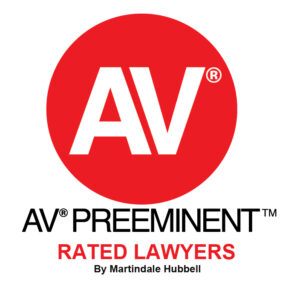Personal and Business Bankruptcy in Nevada
Filing for bankruptcy protection is a significant decision. Many people falsely equate it with failure or the end of one’s dreams of financial security. However, the reality is that many individuals, couples, and businesses go through this challenging but necessary step. They often emerge with finances that are manageable again and with new strength and determination to succeed.
The enormous financial consequences of the coronavirus have hit individuals and small businesses in Nevada, incredibly hard. The ripple effect of lost tourism dollars for restaurants, bars, hotels, casinos, and more has hit every sector of Nevada’s economy. So it’s no wonder more Nevada families and businesses than ever are considering bankruptcy protection.
The United States Bankruptcy Code and the bankruptcy protections created by Nevada’s state provide you and your business several paths to start over when faced with dire financial circumstances or overwhelming debt. Let the expert administrative and business law experts at Whitehead & Burnett assist you or your business make the best choices possible to weather these difficult economic times and find a brighter financial future.
Is Bankruptcy Right for You or Your Business?
Bankruptcy can have clear advantages for those struggling with unsustainable personal or business debt:
- Filing for bankruptcy triggers the automatic stay, preventing creditors from taking action to collect their debts, including calling you, suing you, or sending you letters.
- The stay prevents creditors from repossessing property such as cars and stops many evictions, foreclosures, wage garnishments, and utility shutoffs.
- You will be able to discharge your obligation to repay any of your dischargeable debts.
- Through exemptions available under bankruptcy protection, many debtors can go through the bankruptcy process without losing any of their property.
- Although a bankruptcy filing will remain on your record for seven to ten years, because many debts can be discharged in bankruptcy, many debtors improve their credit rating after bankruptcy.
Some disadvantages can make the decision to file for bankruptcy protection less clear for an individual, couple, or business:
- Personal property that does not meet criteria under bankruptcy exemptions may be taken by the bankruptcy court and sold to pay your creditors.
- Most credit card companies will automatically cancel your credit cards when you file for bankruptcy.
- A recent bankruptcy filing may hinder your ability to obtain a mortgage or other loan.
- Tax refunds from federal, state, or local governments may be denied based on your bankruptcy.
- Some prospective employers or landlords may look unfavorably on a recent bankruptcy filing.
- You may be precluded from being named a director of a limited liability company.
- Some debts, such as student loans, many types of tax debts, liens, support orders (such as child support and alimony), federal and local taxes or fines may be non-dischargeable under bankruptcy protections.
- After filing for Chapter 7, you cannot re-file under Chapter 7 for at least seven years.
Subchapter 5 Small Business Bankruptcy Protections
In February 2020, a new option for small businesses facing mounting debt went into effect: Subchapter 5 bankruptcy protections create a lifeline for struggling small businesses. Subchapter 5 filing is much simpler, faster, and less expensive than a traditional Chapter 11 bankruptcy filing. It enables your business to restructure debt quickly and move forward to stabilize your financial future.
Subchapter 5 was enacted to address Chapter 11 concerns for small businesses. Chapter 11 can be a lengthy and complicated process, and its expensive creditor committees and procedural and reporting burdens made it out of reach for many small businesses.
In order to qualify under Subchapter 5, debt limits were originally $2,725,625. However, as a result of the CARES Act, the debt limits have been raised to $7,500,000, opening the door to more businesses needing to eliminate or restructure debt in this unprecedented time.
Key benefits of Subchapter 5 bankruptcy protections include:
- Expedited case schedules, including early status conference and 90-day plan submission deadline.
- Ability to retain ownership interests in your business
- No “new value” rule applied to equity holders.
- No unsecured creditors committee
- Plans are generally approved if all the debtor’s disposable income is used to make payments for three to five years.
- If you complete the required payments, the remaining debt is discharged.
Chapter 7 Bankruptcy Protection in Nevada
Chapter 7 is the most common of bankruptcy filing and is often called “liquidation.” Filing for Chapter 7 forgives unsecured debt and allows the debtor to start over with a clean slate. Individuals, married couples, and businesses are eligible to file for Chapter 7 protection.
A trustee is appointed under Chapter 7 to sell the debtor’s assets to pay off debts. Federal and Nevada state laws include exemptions that allow the debtor to retain a primary residence and most necessities, such as a vehicle.
Chapter 11 for Your Las Vegas Business
Chapter 11 is the principal business reorganization chapter of the Bankruptcy Code. Chapter 11 creates an “estate” made up of a debtor’s legal and equitable interests. Under Chapter 11 bankruptcy protection, the debtor may continue to operate his or her business and control the estate assets, rather than having a trustee assigned to manage the process as is the case under Chapter 7. Like Chapter 7, Chapter 11 protections trigger an automatic “stay” of attempts to collect on debts from before the bankruptcy filing.
Chapter 11 can be a complicated, lengthy process to navigate. Chapter 11 creates a reorganization plan to satisfy all claims against, and interest in, the debtor entity. Creditors must vote on proposed reorganization plans. When the bankruptcy court confirms a plan, all creditor claims are paid out according to the plan. Generally, unsecured creditors get paid very little on their claims and are paid over a period of three to five years.
Chapter 13 Personal Bankruptcy Protection in Nevada
Chapter 13 bankruptcy protections are for specific circumstances, namely, when an individual with a steady income owes secured and unsecured debt under certain amounts. A debtor may file for Chapter 13 bankruptcy protection if his or her unsecured debt is less than $269,250 and secured debt is $807,750 or less. The debtor and an assigned trustee will develop a repayment plan that must be approved by the court. Chapter 13 debt is typically paid off within three to five years.
Call Whitehead & Burnett Today
Don’t suffer under the uncertainty of crushing debt any longer. Let a member of our experienced business and personal bankruptcy law team help you sort out the best path forward for your personal or business finances. We can save you the stress of tackling a mountain of confusing paperwork, can defend you should legal assistance be required, and can save you the stress of uncertainty with the process.
You may be feeling pressured by contact calls from creditors. Still, you owe it to yourself to speak with an attorney specializing in bankruptcy law before making any major decision around resolving your debts. The skilled legal team at Whitehead & Burnett can help you understand all of your options and help you ensure that filing is the best possible course of action for your particular circumstances. If bankruptcy protection is right for you, we can help guide you through the process so that you and your business emerge from proceedings in the best possible position for a fresh start and a path toward regaining your financial security. At Whitehead & Burnett, our team of seasoned business and administrative law attorneys have spent years helping clients in the Las Vegas area just like you to sort out complicated financial situations and set you on a path to a brighter future.



